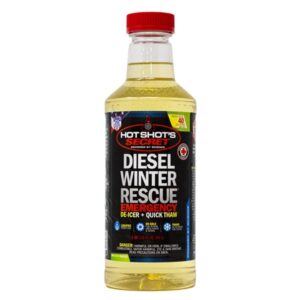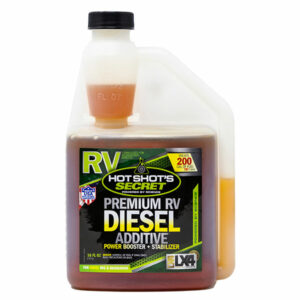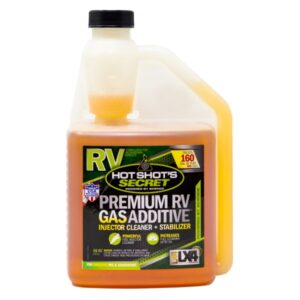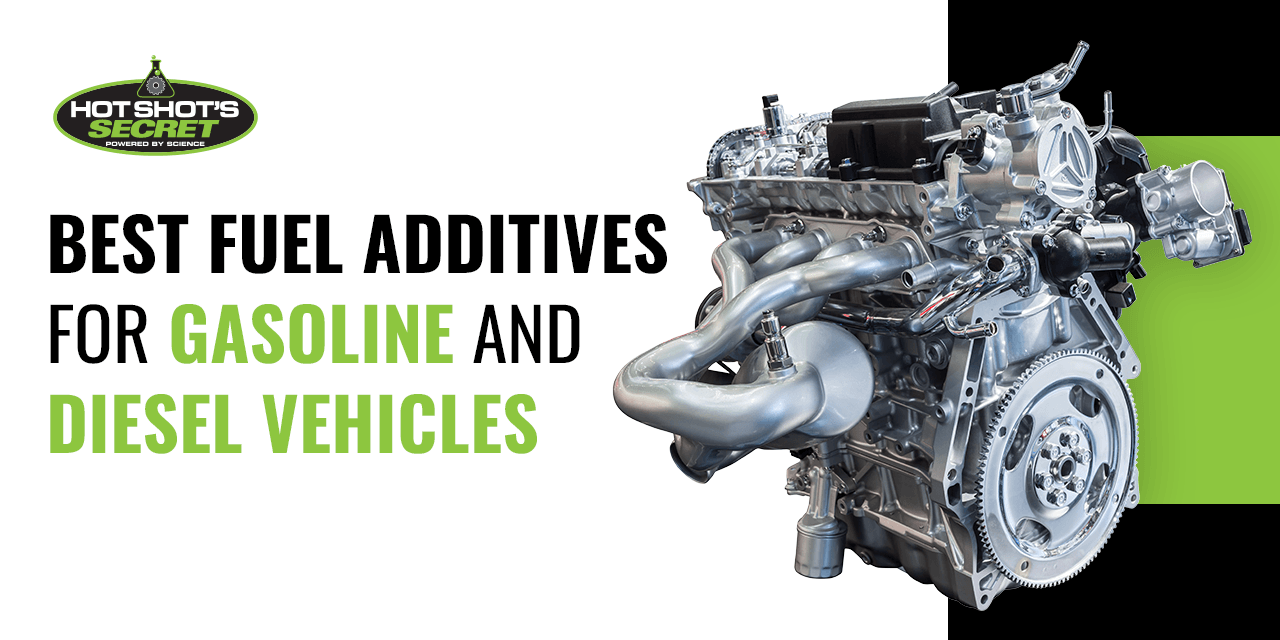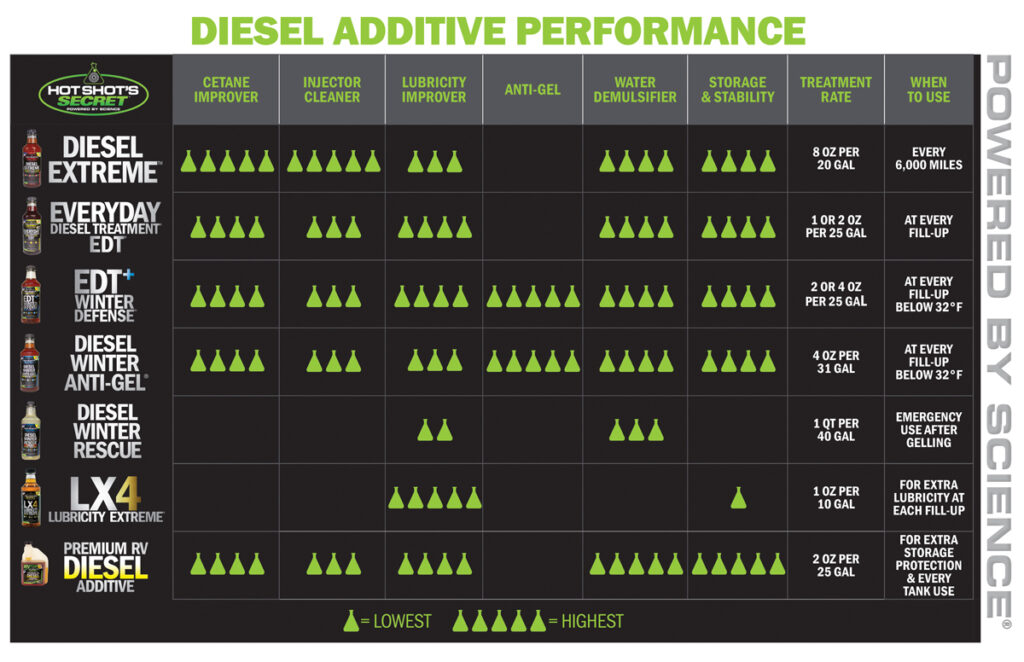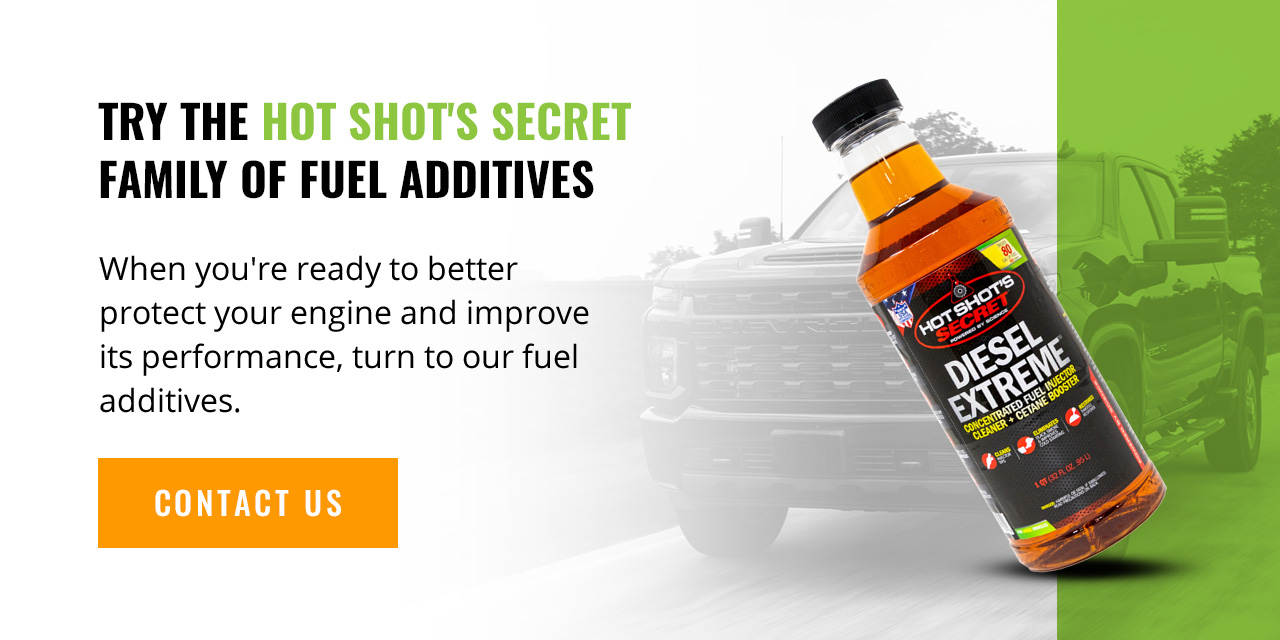Best Fuel Additives for Gasoline and Diesel Vehicles
-
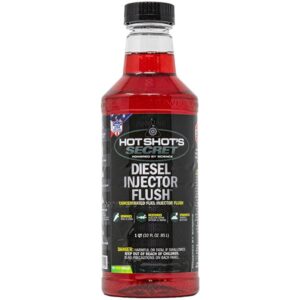
Diesel Injector Flush
-
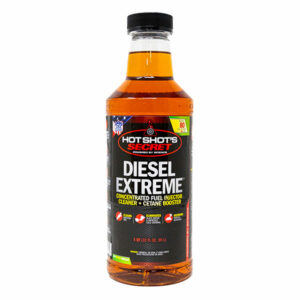
Diesel Extreme
-
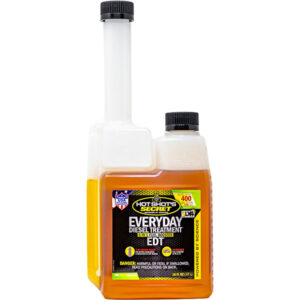
Everyday Diesel Treatment
-
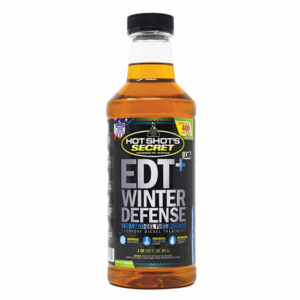
EDT+ Winter Defense
-
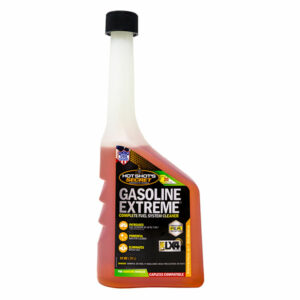
Gasoline Extreme
-
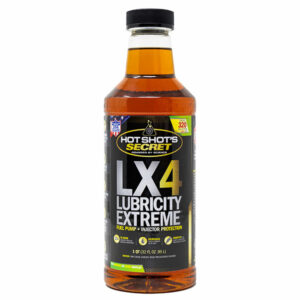
LX4 Lubricity Extreme
-
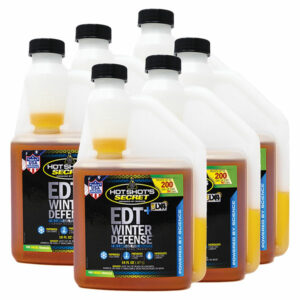
6 PACK EDT+ WINTER DEFENSE SPECIAL
-
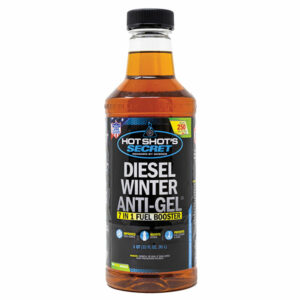
Diesel Winter Anti-Gel
-
Diesel Winter RESCUE
-
PREMIUM RV DIESEL ADDITIVE
-
PREMIUM RV GAS ADDITIVE
Top Fuel Additives for Gasoline and Diesel Vehicles
At Hot Shot’s Secret, we carry several fuel additives designed to serve varying purposes. To help you get an idea about what fuel additives are, check out some of the best real-world examples of fuel additives on the market today.
Diesel Extreme: When you need a fully formulated cleaner designed to remove harmful internal and external diesel injector deposits, like polymeric and waxy deposits, Diesel Extreme is an excellent choice. This top-tier diesel fuel additive combines a cetane booster, a fuel stabilizer and a water demulsifier additive to ensure your fuel system stays clean and operates at maximum performance while reducing excessive smoke.
Everyday Diesel Treatment: The Everyday Diesel Treatment is a fuel treatment drivers can use at every fill-up to upgrade their maintenance and fuel economy. It contains a cetane improver designed to improve your engine’s performance and power. Additionally, this product boosts your fuel’s lubricity and keeps your dpf clean.
Diesel Winter Anti-Gel: Winter puts more stress on your engine’s fuel, and Diesel Winter Anti-Gel ensures your engine weathers the cold well. People can use this product at every fill-up, helping improve cold starts, prevent icing and gelling and reduce fuel line freeze.
Diesel Winter Rescue: Another top-tier winter fuel additive is Diesel Winter Rescue. You can use this fuel de-icer additive in an emergency to de-ice fuel filters and re-liquefy gelled fuel. By using this product, you can restore your engine’s power and flow.
LX4 Lubricity Extreme: The LX4 Lubricity Extreme is a premium ultra-low sulfur diesel and gas fuel lubricity additive. We crafted this fuel additive to improve your fuel’s lubricity, helping prevent scarring and wear on your fuel system’s essential components. Even when your fuel is extremely low quality, this product can restore the fuel to meet, and even exceed, OEM requirements.
Gasoline Extreme: Our Gasoline Extreme is a powerful injector cleaner compatible with gasoline engines. You can use this product to remove deposits in your intake valve and combustion chamber. It also lubricates a fuel system’s crucial components, improving an engine’s performance, power and economy.
Try the Hot Shot’s Secret Family of Fuel Additives
With all the benefits of the Hot Shot’s Secret family of fuel additives, you might be interested in investing in them. Customers use our products for various applications, such as diesel and gas vehicles, marine crafts, RVs, semis, agricultural machinery and construction equipment. Since we serve so many customers, you can feel confident coming to us with any questions or needs you might have. When you’re ready to better protect your engine and improve its performance, turn to our fuel additives.
Browse our selection of fuel additives, and if you have any questions about our products, please feel free to contact us.

